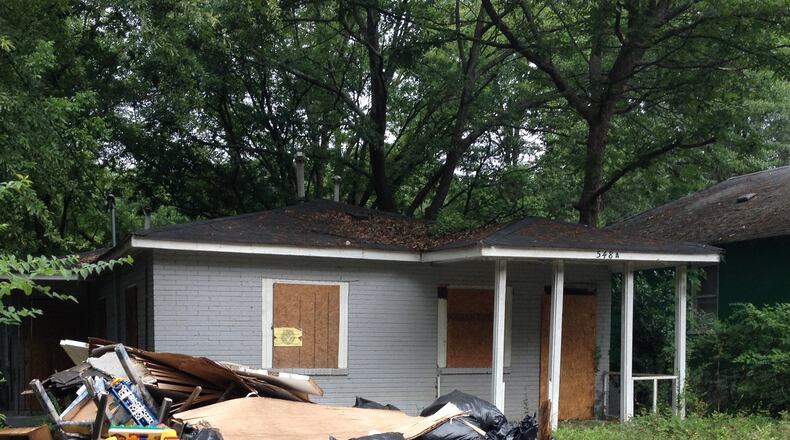When a bad owner lets his or her house fall apart, you as a taxpayer are on the hook for the trouble it causes.
In Atlanta, that cost is in the millions of dollars, according to a report by Georgia Tech professor Dan Immergluck, a top expert on housing. He talked about it today on Georgia Public Broadcasting's radio program On Second Thought, which did a segment on the city's problem of blighted neighborhoods. (I was there, too, as was Tina Arnold, executive director of Sustainable Lakewood. You can listen to it here. )
The report, which was done as part of a city contract with anti-blight nonprofit Center for Community Progress, details the costs:
The analysis in this report yields a conservative range of between $1.67 to $2.96 million in annual Code Enforcement, Fire, and Police direct service costs, incurred by the City of Atlanta, that are related to vacant properties. In addition, the analysis yields a best, reasonable estimate of losses in single-family property values in the City due to distressed, vacant properties of $153 million, with a conservative, lower bound of $55 million. Such a decline in property values translates into a best, reasonable estimate of property tax revenue decline of $2.7 million per year, with a lower bound of $985,000 per year.
Violating housing code ordinances is a crime, but my discussions with the worst deadbeat owners shows that they don't consider it to be one. To them, the fines - typically just a few hundred dollars or so - are the cost of doing business. Paying them is often cheaper than fixing up their property.
I think it's fair to conclude that as a result, taxpayers are unwittingly helping to pad the profit margins of deadbeat owners. The owner pays lower operating costs because he doesn't keep up his property. You pay the cost of related city services and pick up the slack for lower tax revenue caused by a decline in property values.
About the Author
The Latest
Featured



